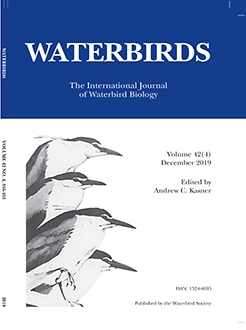This study was conducted using wildlife cameras at nests in a colony of Black-faced Spoonbill (Platalea minor) on Mae-do Islet (37° 34′ 07.17″ N, 126° 35′ 08.10″ E), Incheon, South Korea to monitor and examine the variation in incubation patterns between males and females among four different stages of incubation (Egg-laying, Early-, Mid-, and Late-incubation stage). Mean egg-incubation bout length was longer for females (Egg-laying stage = 6.55 ± 0.44 hr SE; Early-incubation = 7.34 ± 0.48 hr; Mid-incubation = 7.22 ± 0.44 hr; Late-incubation = 7.89 ± 0.58 hr) than for males (Egg-Laying = 4.55 ± 0.39 hr; Early-incubation = 6.35 ± 0.46 hr; Mid-incubation = 6.94 ± 0.40 hr; Late-incubation = 7.07 ± 0.51 hr), but the differences in average incubation bout length between females and males decreased after the Egg-laying stage. Females incubated a greater proportion of time during nighttime (Females: 88.21 ± 3.73%; Males: 11.79 ± 3.73%), and males incubated a greater proportion of time during daytime (Female: 25.19 ± 3.48%, Male: 74.80 ± 3.48%) after the egg-laying stage. This study suggests that Black-faced Spoonbills divide their duties according to diel schedule and adjust the incubation duration throughout the entire incubation period.
How to translate text using browser tools
1 December 2019
Variation in Biparental Incubation Patterns of the Black-Faced Spoonbill (Platalea minor)
Jong-Hyun Park,
Ki-Sup Lee,
In-Ki Kwon,
Hoon Chung
ACCESS THE FULL ARTICLE

Waterbirds
Vol. 42 • No. 4
December 2019
Vol. 42 • No. 4
December 2019
Black-faced Spoonbill
camera monitoring
incubation
nesting behavior
parental investment




